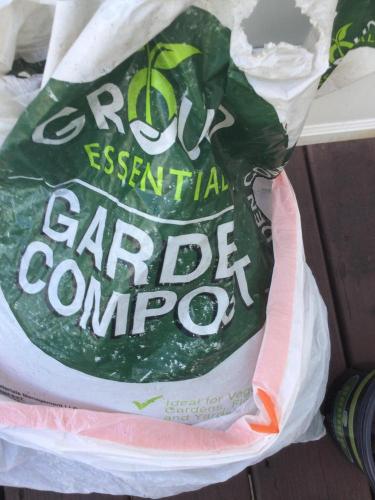@vajmisc
You asked about what to use to add organic matter to your soil, if not purchased compost.
Brown sphagnum moss is an old standard that is generally uniform in size and free of organisms of any kind. It's sold in compressed bales of 2-3 cubic feet. For use, it needs to be loosened. It is difficult to wet at first. I usually moisten it in the bag before using it by either cutting openings in the bag to allow rain to wet it, or run water in with a hose if I need it soon. Then I "fluff" it with my hands before adding it the soil or potting mix. Sphagnum is getting harder to find and more expensive. It's "mined" from peat bogs which are ancient deposits. It's developed a reputation as unsustainable and detrimental to the environment for this reason.
A more recent product is coir, which is fibre from coconut husks. It's also called coco peat or coir peat especially when it is processed into a well-ground form suitable for potting mix or soil amendment. Like sphagnum, this is also sold in dry compressed blocks or bales. When moistened it expands when "fluffed", much like peat. Its pH tends to be in the neutral range, whereas peat is usually acidic. There may be an outside chance of weed seeds but coir is otherwise free of organisms.
If available in your locale, finely ground pine bark can be used as a soil amendment. Many of the particles will be woody and resistant to rapid decay but they will eventually decompose. The finer particles behave more like peat. This is also an excellent surface mulch for garden beds.
None of the above have nutrients sufficient for plant growth. Those must come from the existing soil or added fertilizers.
You could add alfalfa pellets as a source of both nutrients and organic matter. They're fairly expensive.I don't use them but many gardeners do, usually by mixing a few in with the soil added to fill the hole when planting, I think.
Pat
